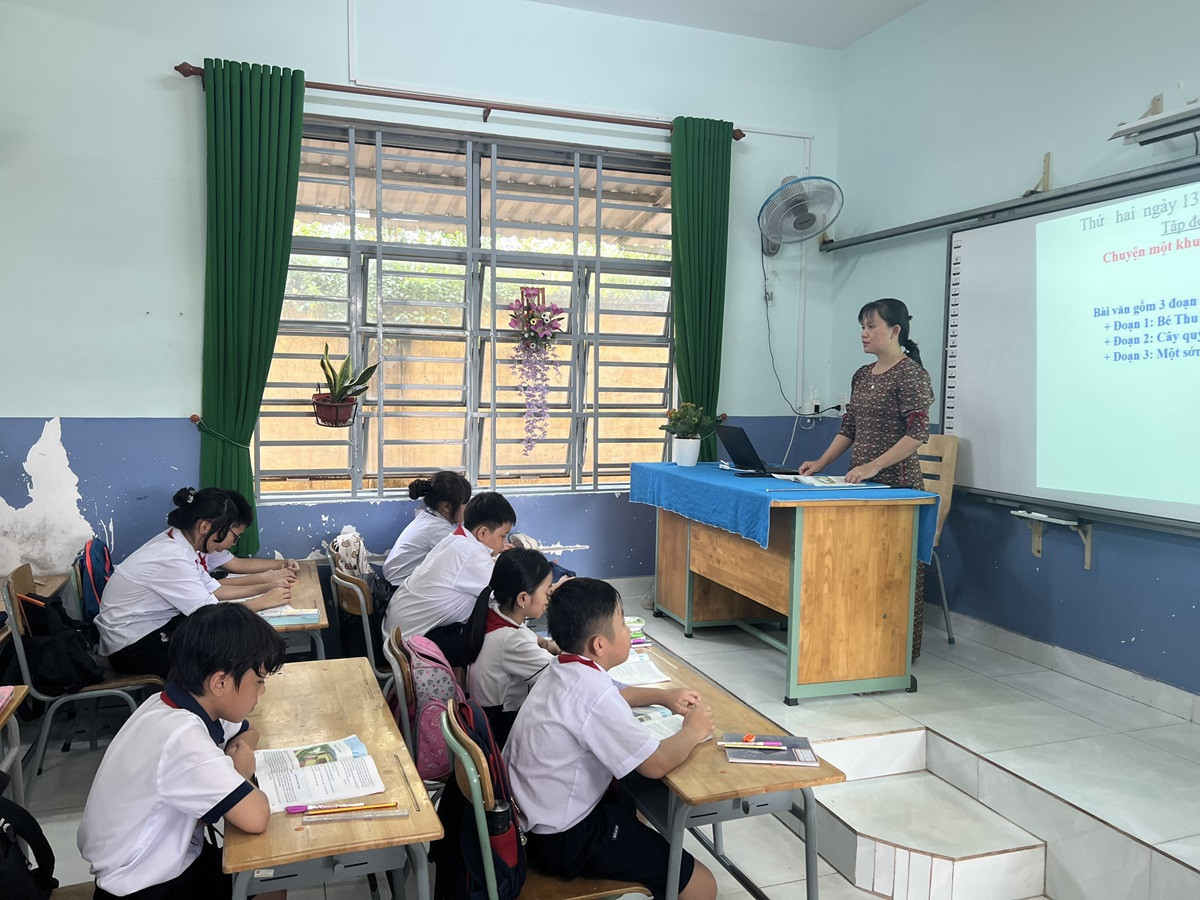Without effective management measures, even with new regulations, rampant extra teaching and learning, and "illegal teaching" may still be a problem that causes public outrage.

For a long time, the issue of extra teaching and learning has been a constant source of public outrage. Almost every school year, the education and training sector directs strict implementation of regulations on extra teaching and learning, but in many forums, in meetings with voters, discussions at National Assembly sessions, and provincial People's Council meetings, extra teaching and learning are still issues that are dissected and questioned.
As soon as Hai Duong Newspaper Fanpage posted information about the draft Circular regulating extra teaching and learning that the Ministry of Education and Training was putting out for public consultation, there were many comments with different viewpoints. Many of them only focused on whether extra teaching and learning should be allowed or not, without really paying attention to the new points of this draft compared to the old regulations in Circular 17/2012 of the Ministry of Education and Training.
The first viewpoint opposes extra teaching and learning because it is costly for parents, increases academic pressure on children, and even leads to teachers tending to oppress students when they do not take extra classes or finding ways to force students to take extra classes.
On the other hand, many opinions agree with the need for controlled tutoring and extra learning because it is the parents’ demand. To some extent, extra learning also helps children stay away from phones, computers with harmful electronic games, and waste time surfing the internet for entertainment.
There are suggestions to allow teachers to teach extra classes, like doctors can open private clinics or organize extra teaching centers...
Compared with the old regulations on extra teaching and learning, it can be seen that the new draft circular still inherits many regulations on principles for organizing extra teaching and learning and some cases where extra teaching is not allowed.
The basic difference is that the new draft has more specific regulations and also expanded the regulations related to organizing extra teaching and learning outside of school. That is, teachers who teach extra teaching outside of school must report to the Principal about the subject, location, time of participating in extra teaching and commit to the Principal to complete the assigned tasks, not violating the regulations on principles of extra teaching and learning. If there are students in the class that the teacher is directly teaching in the school, they must report, make a list of those students and send it to the Principal and commit not to use any form of forcing students to take extra classes. Meanwhile, according to the old regulations, teachers who are receiving salaries from the salary fund of public service units are not allowed to organize extra teaching and learning outside of school, especially with students who are teaching regular courses. The new draft circular also stipulates that the organization of extra teaching and learning must register for business in accordance with the provisions of law.
The draft is like that, but it is unclear how to handle violations by teachers other than the general requirement to handle violations according to the law. In reality, the frustrations related to extra teaching and learning still mainly stem from teachers teaching extra classes outside of school but not complying with regulations. Teachers "teaching secretly" without reporting or paying personal income tax from extra teaching sources are still quite common. The "commitment to not using any form of forcing students to take extra classes" is still quite vague, because this requirement has always existed, but there are still students who reluctantly go to school because they are worried that the teacher will not care for them or that they will encounter lessons that have not been thoroughly reviewed in the test...
At the meeting of the Provincial People's Committee on August 26, the Hai Duong Provincial People's Committee also agreed to propose abolishing a number of fees, including tuition fees in secondary schools, high schools, and Nguyen Trai Specialized High School in the Resolution of the Provincial People's Council because they are not consistent with relevant legal documents and Decision No. 43/2018/QD-TTg dated November 1, 2018 of the Prime Minister promulgating the Vietnamese product industry system regulating education and training services. These fees will be guided by documents later, but if not well controlled, they can easily increase parents' concerns about having to send their children to extra classes outside of school.
To solve this problem, we need to refer to the management model of extra teaching and learning in advanced countries such as Japan, Singapore, Korea or even China... It is important to design a program so that students have more time to study on their own, and are more proactive in self-studying than having to take extra classes.
HOAI ANH